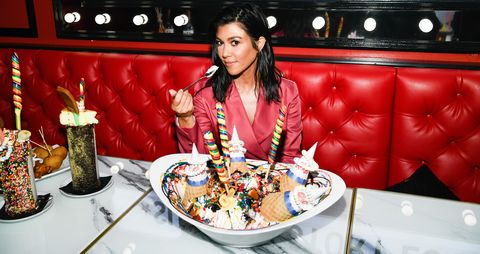
Chances are, at some point, you’ve read a celebrity’s diet tip or an influencer’s food diary and wondered whether you’d feel as great as they look if you also began your days with a green smoothie, ate a kale salad for lunch, filled your dinner plate with grilled fish and steamed veggies, and topped it all off with a small piece of dark chocolate.
Here’s the deal: “You’re not going to become Jennifer Aniston if you eat like her,” says Philadelphia-based weight-loss expert Dr. Charlie Seltzer, M.D.—and the same goes for mimicking meals favored by stars like Kim Kardashian, Kylie Jenner, and Meghan Markle.
Whether your goal is to lose weight or to improve your diet for another reason, here’s why copycatting an A-lister’s eating habits isn’t the smartest approach:
Everyone’s metabolism is different.
Because your resting metabolic rate—i.e., how many calories you burn at rest—is based on many variables such as your height and weight, genes, sex, activity level, current diet, and muscle mass, there’s little chance your system needs exactly the same amount of calories or micronutrients like protein, carbs, and fat, as a celeb you aspire to eat like, according to Dr. Seltzer. “Weight-loss diets aren’t one-size-fits-all,” he says. “Following someone else’s is like looking through their glasses. The likelihood of seeing clearly with their prescription is really low.”
“Weight loss diets aren’t one-size-fits-all.”
Think about it: Say you’re twice as active as an influencer you follow. Eat exactly what she eats, and you’ll feel way more tired and way more hungry than she is, since your body likely requires more fuel to operate, Dr. Seltzer says. A more appropriate diet that’s based on your specific energy needs may involve way more food—like two ice-cream scoops instead of one!—and give you way more energy so you can live your best life, hanger-free.
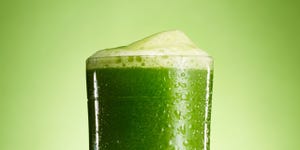
Keep in mind that it’s tough to accurately calculate how many calories you burn at rest, and through activities, outside of a clinical setting. So eating like someone who has about the same body size won’t necessarily do you any favors, either.
It subjects you to totally unnecessary restrictions.
“True food sensitivities are less common than people think,” Dr. Seltzer says, noting that some people—including celebrities!—who claim to feel lousy after eating a particular ingredient might wrongly blame something like gluten when the real problem is overeating a food that happens to contain it.
If you don’t personally experience symptoms after eating something like cheese or bread, omitting a beloved food a la your favorite celebrity probably won’t affect your body in a measurable way—unless, Dr. Seltzer explains, that change ultimately impacts the total number of calories you eat in a day. If you replace your daily pizza slice with a gluten- and lactose-free alternative with roughly the same number of calories, you’ll end up where you started…with cravings for the OG alternative you actually wanted.
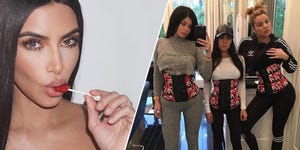
It’s typically unsustainable.
Oh, you don’t have a personal chef? Or Candace Cameron Bure’s go-to salad isn’t on your local diner’s menu? “Celebrities have resources average people don’t have,” Dr. Seltzer says, referring to their capital, hired help, and flexible work schedules (in the case of fit-fluencers) that makes meal planning and prep a cinch.
Throwing your all into a meal plan that takes too much time to assemble, involves eating more frequently than your schedule allows, or contains expensive ingredients that you—and your budget—can’t sustain in the long term could chip away at your best intentions: “It sets you up for failure before you begin,” Dr. Seltzer says. “And giving up can leave an emotional impact.”
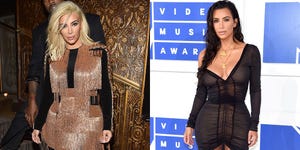
Starting from scratch with a completely new eating plan isn’t always the best way to diet.
“The more you deviate from natural tendencies, the worse you’re going to be,” Dr. Seltzer says of drastic changes that urge Chipotle regulars to order sushi, instead. “A plan that accommodates your existing behaviors, where you change as little as possible, will be easier to follow.”
It makes sense: Wouldn’t you prefer to order a bowl instead of a burrito at your beloved fast-casual joint, rather than ditch your old standby? What’s more, research suggests super small swaps—like snacking on an apple instead of chips—may be sufficient for fending off gradual weight gain and, when extrapolated to an entire population, significantly reducing heart disease and stroke deaths.
Their tips may omit the secret(-ly unhealthy) sauce.
Actors and influencers who follow extreme diets to mold their bodies to play a character or to squeeze into a sample size on the red carpet may take additional measures beyond tweaking what they eat to meet their goals, according to Dr. Selzter, who often wonders whether weight-loss pills and other appetite suppressors are actually behind some celebrities’ shape-shifting.
“You never get the whole picture,” he says of their soundbites. “The diets they share may not show what they’re doing every day—they could be taking extreme measures, because it’s their job to lose 30 pounds in six weeks for a role.”
Meaning? The average person eating the same meals they do—without the other iffy tactics—won’t necessarily see similar results.
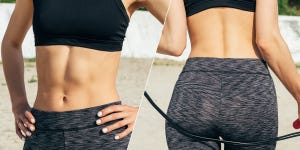
It could be super dangerous.
There’s a reason why you’re supposed to consult your doctor before overhauling your diet: Some eating plans can aggravate existing health conditions. For instance, large quantities of protein can worsen organ function in people with kidney disease, while unbalanced meals (i.e., mono meals comprising only, say, fruit or potatoes) could cause a diabetic’s high blood sugar to spike, leading to nerve damage and other complications over time.
In the absence of specific health issues, celebrities’ diets might not deliver all the calories and nutrients you need.
The Bottom Line:
Celebrities who say they’re eating more veggies, fewer processed foods, or more moderate meal portions may be onto something—”that’s a great idea for everyone,” Dr. Seltzer says—but their diets, on the whole, might not be ideal for you. Should you look to their food logs for, say, breakfast inspo? Sure, Dr. Seltzer says. Just don’t let their habits take the place of common sense—or sound medical advice.
Follow Elizabeth on Instagram and Twitter.
Source: Read Full Article